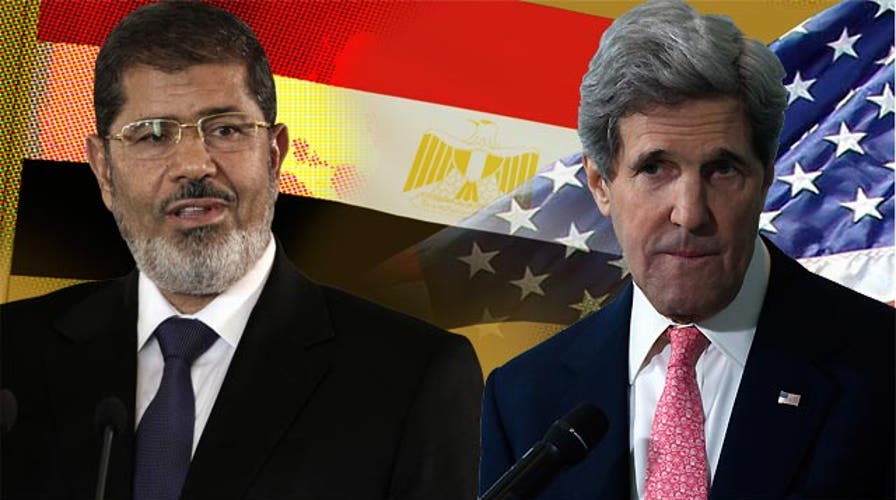At a time when money is tight at home and with Congress fighting over how much to spend, some argue for a closer look at foreign aid -- especially aid to Egypt, where last September demonstrators stormed the U.S. embassy.
"Not one penny more to countries that are burning our flag," Sen. Rand Paul, R-Ky., told the Conservative Political Action Committee gathering in Washington.
Sen. Marco Rubio went one step further, offering an amendment to a pending budget bill that would impose conditions on additional aid.
"Foreign aid is not charity. Foreign aid is something that's supposed to further the national interest of the United States," the Florida Republican told Fox News in an interview. "And my problem with the Egyptian aid, and quite frankly with a lot of our foreign aid, is that we give foreign aid, but we're not sure what we're getting in return for it. What is the national interest that's being advanced?"
Rubio wants Egyptian aid to come with conditions, such as cooperation in counterterrorism, religious liberties, rights for women and, especially, living up to the 1979 peace treaty with Israel.
Rubio's move was prompted by Secretary of State John Kerry's recent visit to Egypt, during which he delivered $250 million in economic aid, with another $260 million promised later.
On March 2, during a visit to Cairo, Secretary Kerry said, "It is paramount, essential, urgent that the Egyptian economy get stronger, that it get back on its feet."
But analysts say giving Egypt money without conditions is counterproductive.
"It won't do much to actually help Egypt's economy," says Eric Trager of the Washington Institute for Near East Policy. "It's just another example of giving money without getting anything in return. And in approaching this Muslim Brotherhood government, our policy should be that they have to give to get."
President Mohamed Morsi and his Muslim Brotherhood allies have ended direct relations with Israel, often blame Israel for incidents in the critical Sinai Peninsula and have even called for the destruction of Israel.
But now, Egypt is desperate for economic help from the U.S. and international groups, seeking 4.8 billion, for instance, from the International Monetary Fund, or IMF.
"They're going hat in hand," Trager said. "They're asking for major economic aid. They're asking for support at the IMF. That should come at a price, especially because of the outlook of this Muslims Brotherhood government."
Rubio would be more careful with military aid.
"Well, clearly the government has changed, and certainly you know there's a battle going on in Egypt right now between some people that want to see the country stay secular and others that want to see it become more Islamist, and the military is kind of stuck in between," he said.
U.S. aid won't ensure the Muslim Brotherhood changes its ways, but whether the U.S. should continue sending money to bail out the Egyptian economy remains a hot topic on Capitol Hill.





